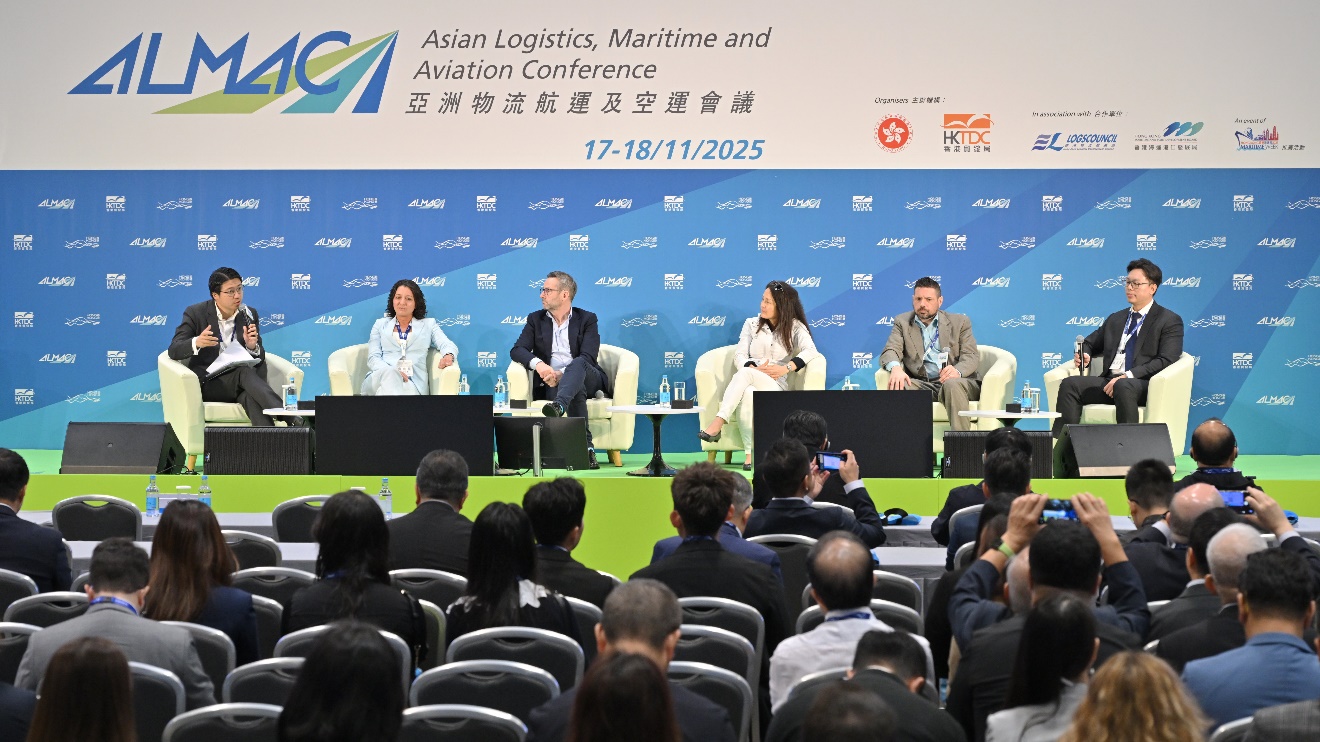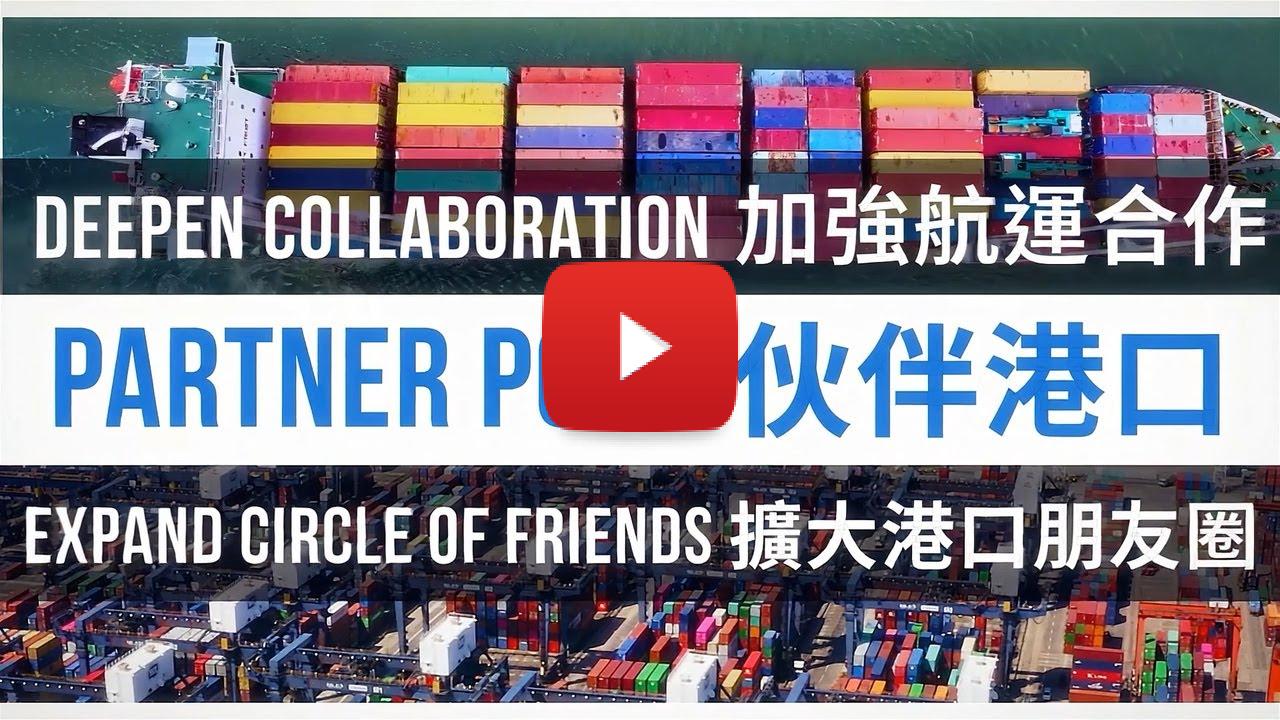With over 50 events organised by more than 70 international, Chinese Mainland and local organisers, HKMW 2025 has drawn a record of over 18,000 participants from around the globe. It provides a high-level platform for policymakers, senior representatives of international organisations as well as industrial luminaries and practitioners to share their perspectives and exchange views on various topics of interest to the global maritime industry.

Speaking at the opening ceremony (November 17), John Lee, Chief Executive of the Hong Kong Special Administrative Region (HKSAR), urged stronger international collaboration to overcome challenges and forge a more sustainable future for maritime industries.
“In a world being reshaped by geopolitical discord, technological disruption and climate change, these themes are more than aspirational. They sound an alarm, a wake-up call to collective action,” Mr Lee said. “Hong Kong’s role as a stable, reliable and dynamic maritime hub has never been more vital. The principle of ‘one country, two systems’ is the cornerstone of our success, providing us with an unshakeable foundation.”
Mr Lee also attended the opening of the two-day Asian Logistics, Maritime and Aviation Conference (ALMAC) (November 17-18), an anchor event of HKMW that welcomed some 2,300 high-profile logistics leaders and professionals from more than 40 countries and regions . During the event, he unveiled the first batch of ports under the newly established Partner Port network.
“I am particularly pleased to announce that Hong Kong has established Partner Port relationships with Guangxi port and Dalian port in the Chinese Mainland, and Port San Antonio in Chile,” Mr Lee said. “These ports are of strategic importance, and true to our character and policy priorities. As an international maritime centre, we connect the Chinese Mainland with the world and seek partners who support an open, international trade order.”
Echoing the theme of the HKMW 2025, the HKSAR Government’s Secretary for Transport and Logistics, Mable Chan, said green transformation is a major global trend in the maritime industry. To help meet the International Maritime Organization (IMO)’s target of achieving net-zero carbon emissions from international shipping by 2050, the government was bringing together all parties, including fuel suppliers and other IMO members to achieve this goal as a joint force.
In a media interview, Ms Chan outlined recent government initiatives to promote green shipping. These include announcing the Code of Practice on LNG Bunkering and Code of Practice on Methanol Bunkering, and launching the Green Maritime Fuel Bunkering Incentive Scheme to provide incentives to pioneer companies conducting green maritime fuel bunkering businesses in Hong Kong for relevant bunkering operations.
“The government facilitated the conduct of the first liquefied natural gas (LNG) ship-to-ship bunkering demonstration by the industry in February 2025. Since then, 13 commercial LNG bunkering operations have been successfully conducted, regularising the provision of commercial LNG bunkering services in Hong Kong,” Ms Chan said. “These demonstrate Hong Kong’s great potential in developing green maritime fuel bunkering.”
Paul Chan, Financial Secretary of the HKSAR Government, highlighted opportunities arising from decarbonisation. Speaking at the Hong Kong Global Maritime Trade Summit (November 17) themed “Building Resilience, Driving Growth and Investment”, Mr Chan said that maritime decarbonisation represents a “multi-trillion-dollar investment opportunity” through 2050.
“The transition to zero-emission marine fuels could create up to 4 million jobs globally across the energy supply chain,” he said. “Here in Hong Kong, we are embracing this. For example, we have published an Action Plan on Green Maritime Fuel Bunkering, positioning ourselves as a regional hub for sustainable fuel supply. Our goal is to provide bunkering services for green fuels to ocean-going vessels more than 60 times per year by 2030, involving over 200,000 tonnes of green maritime fuels.”
Hong Kong ranks fourth, globally, in the International Shipping Centre Development Index for six consecutive years and is home to more than 1,200 port and maritime-related companies, a thriving cluster of global leaders in ship management, finance, insurance and law.
To enhance the city’s leading position in high value-added maritime services, Mr Lee said Hong Kong would make good use of its “one country, two systems” advantages, including being China’s only bilingual common law jurisdiction as well as offering a simple and low tax regime, free port status and the unfettered flow of capital, information and talent.
Ms Chan said, “We will strengthen collaboration with international marine insurance organisations to upscale the training of marine insurance talents, whilst expanding the scope of the Maritime and Aviation Training Fund to cover more green energy courses, thereby reinforcing Hong Kong maritime strengths.”
By harnessing the power of AI, blockchain, cloud computing and other cutting-edge technologies, Hong Kong is developing a Port Community System, to be launched in January 2026. It will enable real-time cargo tracking and facilitate data exchange across transport modes, boosting trade and capital flows digitally, opening up new opportunities, from trade financing to more efficient customs declaration.
Hashtag: #hongkong #brandhongkong #maritime #logistics #aviation #sustainable #capital #hub
![]() https://www.brandhk.gov.hk/
https://www.brandhk.gov.hk/![]() https://www.linkedin.com/company/brand-hong-kong/
https://www.linkedin.com/company/brand-hong-kong/![]() https://x.com/Brand_HK/
https://x.com/Brand_HK/![]() https://www.facebook.com/brandhk.isd
https://www.facebook.com/brandhk.isd![]() https://www.instagram.com/brandhongkong
https://www.instagram.com/brandhongkong
The issuer is solely responsible for the content of this announcement.



 English
English

